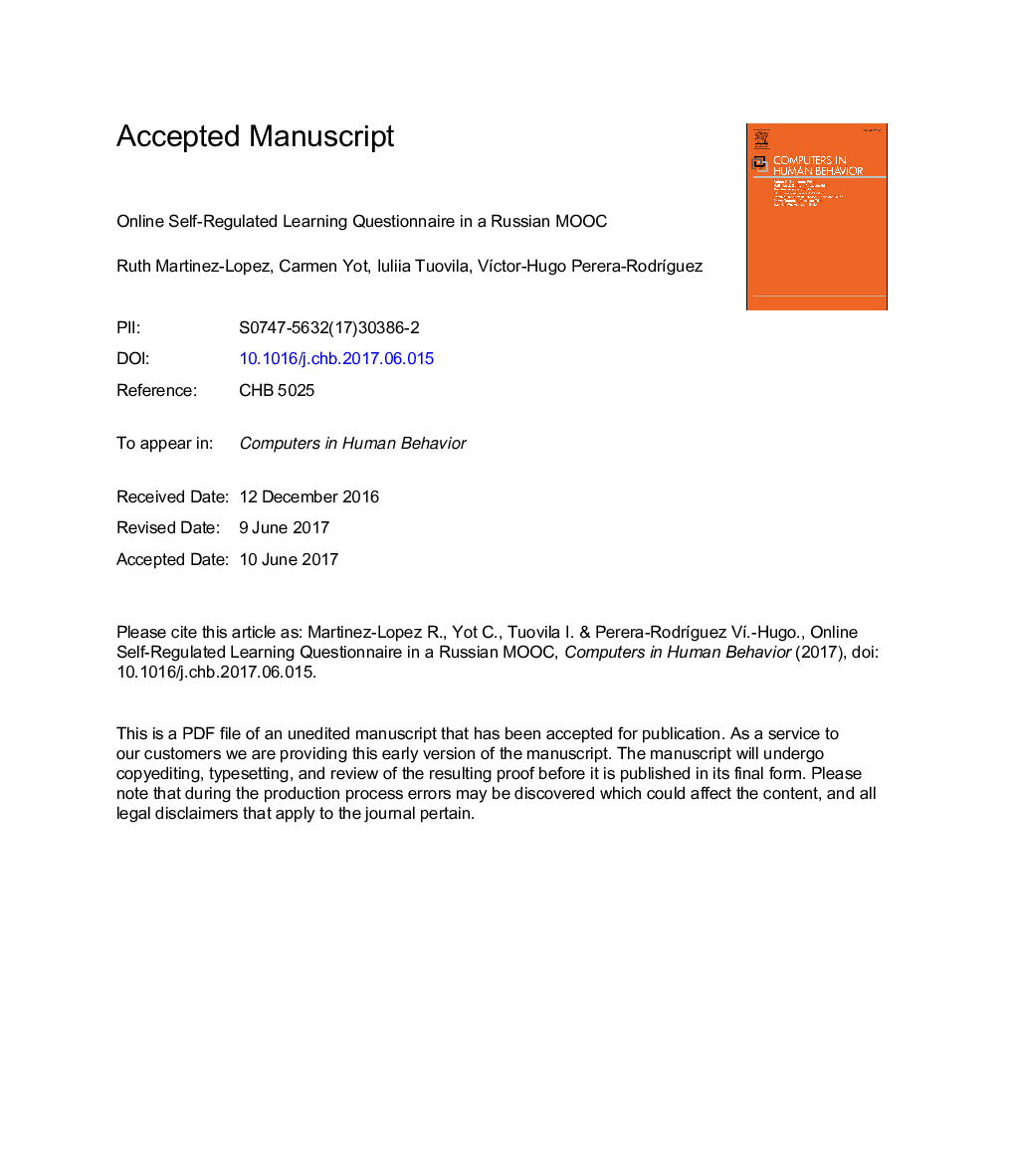| Article ID | Journal | Published Year | Pages | File Type |
|---|---|---|---|---|
| 4937563 | Computers in Human Behavior | 2017 | 23 Pages |
Abstract
The learning opportunities that Massive Open Online Courses (MOOCs) promote urge more research in self-regulated learning to enhance student engagement. Since self-regulation can be determined by the Online Self-Regulating Learning Questionnaire, this research assessed its adaptation, using the modified kappa coefficient and the Content Validity Indexing (CVI) in the Russian context. Clarity, cultural equivalence and relevance of the instrument were classified by seven experts. Forty-five students confirmed the ease of understanding in a pre-test. At scale-level index, the “Goal Setting” value was below the adequate level. Three items were considered unacceptable, and one of them was identified as a potentially problematic item. Confirmatory factor analysis showed some problems in the adjustment of the questionnaire model to the data. Self-regulated learning skills of Russian engineering students in MOOCs are moderate, with high levels in terms of “Environment Structuring” and “Goal Setting”, but low in “Help Seeking”. Self-regulated learning variables indicated no gender differences.
Related Topics
Physical Sciences and Engineering
Computer Science
Computer Science Applications
Authors
Ruth Martinez-Lopez, Carmen Yot, Iuliia Tuovila, VÃctor-Hugo Perera-RodrÃguez,
